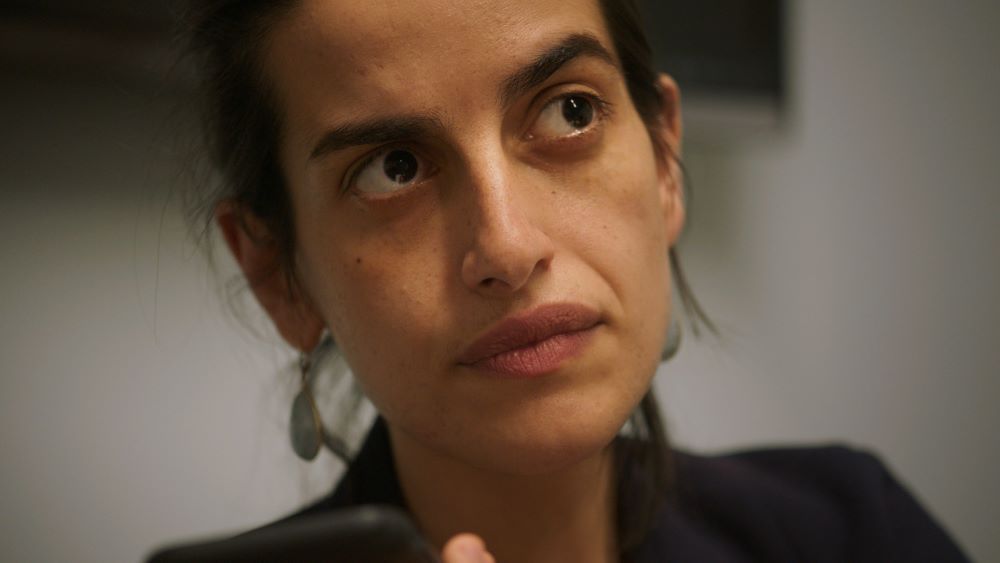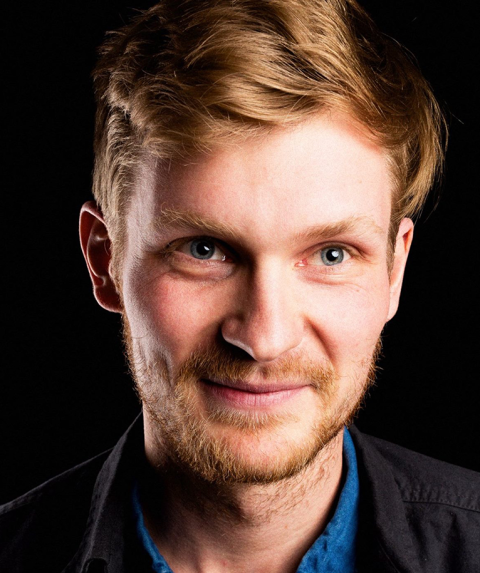
Margaret "Mati" Engel, an aspiring chaplain, appears in a still from "A Still Small Voice," an official selection of the U.S. Documentary Competition at the 2023 Sundance Film Festival. (Courtesy of Sundance Institute)
In the 2019 documentary "Midnight Family," director Luke Lorentzen captured the urgency with which a family who owns a private ambulance service in Mexico City, Mexico, must react in order to make the difference between life and death.
His quieter, but even more affecting, follow-up, "A Still Small Voice," deals with first responders of the soul. In this case, it's a group of aspiring chaplains completing a yearlong residency at New York City's Mount Sinai Hospital, where they provide spiritual care, including commendations for the dying, and follow-ups with the loved ones left behind.
No one truly knows what happens after we die. Scripture says that Jesus rose from the dead on the third day after being laid in the sepulcher, but rather than delving into a Dantesque description of paradise, the Messiah simply comments on the promise of salvation. Our faith, he reminds us through his message to Thomas — "Blessed are they that have not seen, and yet have believed" (John 20:29) — should exceed our need for evidence.
And yet, constant evidence we seek. The collective imagination harbors scenes that include ghostly apparitions seeking second chances to joyful cherubs who spend eternity praising the Lord. Myriad films, television shows, paintings, poems and novels have tried to deliver messages that rid us of the anxiety that arises whenever we think of dying. Our culture, as the COVID-19 pandemic has proved, is far from prepared to deal with death.

Luke Lorentzen directed "A Still Small Voice," an official selection of the U.S. Documentary Competition at the 2023 Sundance Film Festival. (Courtesy of Sundance Institute)
So far, we've lost more than 6.8 million brothers and sisters across the world to an illness whose effects seem almost surreal to behold on film. We're three years into the pandemic, yet last year only a handful of fiction movies, including Todd Field's "Tár," Claire Denis' "Stars at Noon," and Rian Johnson's "Glass Onion: A Knives Out Mystery" even acknowledged its existence. We're in a new normal we haven't become used to.
As I watched "A Still Small Voice," it took me a second to even notice the masks the chaplains were wearing. It's become second nature to recognize someone's smile just by seeing their eyes. The film, which was shot after the pandemic had started, doesn't rely on title cards or harrowing statistics to establish its setting (we know very well how New York City became unrecognizable in 2020). Instead, it matter-of-factly reminds us that medical workers, including the chaplains in the film, have been facing death on a daily basis, long before we knew what the coronavirus was.
Therefore, the film mostly stays away from making COVID-19 references that would seem redundant and potentially rob the experience of becoming as transcendent as it does.
Although we meet a group of chaplaincy residents (all women, interestingly enough) Lorentzen focuses on two people: Margaret "Mati" Engel, and her supervisor, the Rev. David Fleenor. When the film begins, Fleenor leads the women through a grounding session, where he aims to allow them to detach emotionally from the overwhelmingly sad occupational hazards they encounter daily.
Engel, however, has a hard time following this guideline; she challenges Fleenor when he tells her not to pick up the phone on her days off. She sees herself as a potential lifesaver. To him, this comes off as arrogance. "You are not the only person," he reminds her.
Advertisement
Shot by a less compassionate filmmaker, "A Still Small Voice" could easily have become a trite workplace documentary, but as observed by Lorentzen's sensitive camera, it turns instead into a profound meditation on the care we're willing to provide others, but never ourselves. We learn that Fleenor, too, has doubts. Moving scenes between Fleenor and his spiritual director show how his rigidness at work makes him think of other places in his life where he's become inflexible.
Lorentzen doesn't turn anyone into victims or heroes; he merely observes, creating devastatingly beautiful tableaux that often highlight how impersonal death in America would be without people like Engel and Fleenor. The film opens with a still moment in which Engel stands next to a patient who's lost the ability to communicate verbally. "I am trying my best," she explains, inviting him to hold her hand and allow himself to be accompanied during his pain.
We don't know exactly what kind of pain the patient carries, but Engel's expressive eyes show the pain she's reminded of with every visit. When a grieving woman asks her about the afterlife over the phone, Engel says that she rarely shares personal beliefs with patients or their families, but she will make an exception because she knows the pain of grieving for someone who dies suddenly.
The film doesn't need "floating head" interviews to tell us why Engel does the work she does. She, and Fleenor, have seen the physical evidence of death and crave the promise made to us by faith, in order to stay alive.






